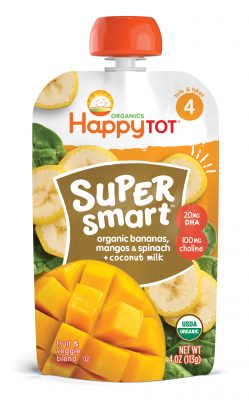The term “superfood” is relatively new, but it has become extremely popular. “Superfoods” refer to foods that have exceptionally high nutritional value in the form of vitamins and minerals, and minimal calories. They are also known for being packed with antioxidants.
There is currently no legal criteria or definition that defines a food as a superfood, but selected fruit, veggies, nuts, spices and even teas have been upgraded to superfood status. So how do you know if a food is a superfood, and which ones should your little ones be consuming?
What are superfoods?
Superfoods are plant-based foods that have a very high nutritional density. This means that the food can provide the body with a lot of nutrients, without consisting of a lot of calories. One of the most important nutrients superfoods have to offer, is antioxidants. Antioxidants occur naturally in certain foods, and they are essential in neutralising free radicals (these are by-products of energy production and they are known for causing various health problems). Free radicals have been linked to cancer, heart disease, arthritis and various other conditions. Antioxidant molecules can decrease, and in some cases even reverse, the effect of free radicals on the body. Studies have shown that superfoods high in antioxidants also have the ability to decrease inflammation in the body.
Superfoods are in no way magical, nor do they guarantee a body free from disease or health conditions, but when incorporated into a healthy diet, they can help strengthen the body’s immune system and improve its functionality.

What types of foods are superfoods?
Superfoods are usually plant-based: either fruits or vegetables. Some of the most common superfoods include:
Berries
Berries have high levels of flavonoids (plant chemicals found naturally in fruit and veg), which aid a healthy heart. The berries most commonly believed to be superfoods are blueberries, goji berries and acai berries.
Mango
Mangoes contain more than 20 different vitamins and minerals. Just one serving provides you with 100% of your daily required vitamin C intake!
Green leafy vegetables
Think spinach, kale and broccoli. They are rich in vitamins A, C, E, and K, and many B vitamins. Leafy greens also contain an abundance of carotenoids, iron, magnesium, potassium, and calcium.
Beets
Beets are very dense with nutrients, including potassium, magnesium, folate and vitamin C. They can help improve circulation and cognitive function, and some studies have even shown that they may contribute to improved athletic performance thanks to their ability to help enhance blood flow.
Instilling healthy eating habits in your little ones from an early age is one of the most important ways of ensuring they enjoy a healthy diet as they grow up.

Happy Family Organics Happy Tot Super Smart Pouches and Happy Family Organics Baby Love My Veggies Pouches are jam-packed with vitamin and mineral-rich super foods, fibre and omega oils, and contain many of the most nutritious superfoods!
Suitable for toddlers who can feed themselves, Super Smart Pouches (R42.04) are convenient to have on-the-go as a healthy snack, or as a part of a nutritious meal. They are free from artificial preservatives, colourants and flavours, and are known for being absolutely delicious, earning them approval from even the fussiest of eaters!
Suitable for toddlers who can feed themselves, Love My Veggies Pouches (R37.10) are packed with highly nutritious veggies and fruit, and contain all the good stuff without any artificial nasties.
Available at all Baby City stores, Babies R Us, Wellness Warehouse, Selected Clicks, Selected Spars, Selected Pick N Pay stores, Selected Baby Boom, selected Dis-Chem and selected Medicare pharmacies, and online from Takealot.com, Babiesafrica.com and Faithful to Nature
Facebook: Happy Baby SA
Instagram: happyfamilyorganicssa






